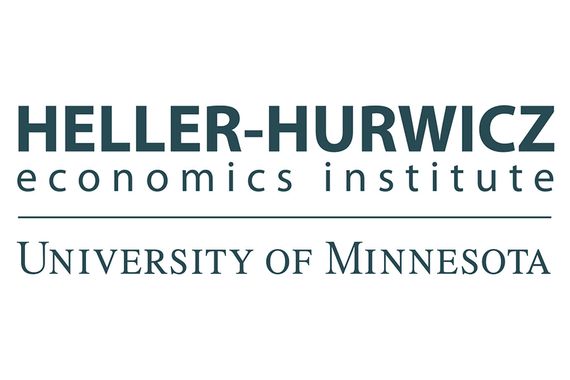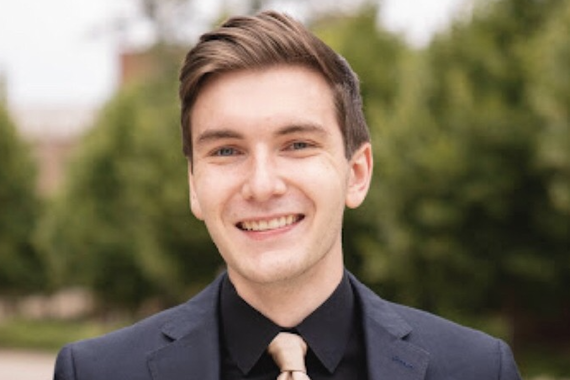Engineering Better Economics with Illenin O. Kondo
Illenin Kondo's work and academic history have taken him all over the globe and across different disciplines. At a recent Economics in Action talk, he shared parts of that story with nearly 50 undergrads gathered in person and online.
Illenin was born in Togo. He also lived in Ghana with his mother’s family during periods of political turmoil in Togo. He began his college education in applied mathematics in France before getting admitted to France's oldest electrical engineering school. He has worked everywhere from New York City to Luxembourg to Atlanta, where he received a master’s degree in electrical and computer engineering from Georgia Tech.
While wrapping up an internship at Goldman Sachs, Illenin chose to leave Wall Street and pursue a PhD at the University of Minnesota instead. Although engineering and economics may initially seem like very different fields, he sees numerous similarities. Economists create models to understand the world around them, precisely fitting together pieces of the model. And with both engineering and economic modeling, some pieces don’t exist yet – so you need to build them.
“The tools of economics help formalize the stories we want to tell,” Kondo shared with students.
Kondo reflects fondly on his time on campus, including leading the Black Graduate and Professional Students Association, sharing an office with fellow students who have become lifelong friends and research collaborators, and meeting his spouse.
In his presentation to students, Kondo recalled learning how to study economics "the Minnesota way." When Illenin puts together his research, he considers ways to explain an economic phenomenon, finds evidence to support a particular idea, and uses theory to explain how evidence and observations paint a consistent picture of economic events. Illenin likens the Minnesota approach to economics to designing an airplane, a dynamic equilibrium system. All the elements need to work together, hang together in “equilibrium,” or everything will fall apart. Illenin learned how to use building block ideas like utility maximization, fixed point theorems, and convex programming to produce the economic models that drive his research.
After completing his doctorate, he worked at the Federal Reserve Board of Governors in the Division of International Finance, in Washington, DC. He also taught at Johns Hopkins University and was Assistant Professor at the University of Notre Dame. In 2020, Kondo returned to Minneapolis to join the Minneapolis Fed as Senior Research Economist. As a member of the Fed’s Opportunity & Inclusive Growth Institute, he brings research expertise to important topics such as the large and persistent racial wealth gap in the U.S.
A macroeconomist with broad interests, Kondo’s research spans international trade, sovereign debt, and the economics of heterogeneity across firms, workers, and locations. He has published work on trade-induced labor reallocation, and the optimal design of infrastructure networks. Students enjoyed hearing about a few of his studies and work in progress; read more about Illenin's research
Illenin is a prime example of how intellectuals from different academic backgrounds find meaningful work and make significant contributions to economics through the U of M. We appreciate our alumni who share their advice and career paths with our current students and look forward to hosting more speakers like Illenin in the future.


